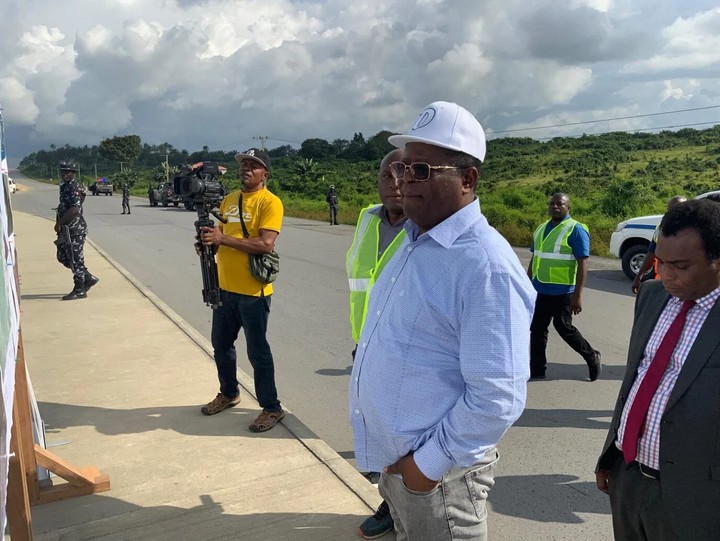By Chukwuma Umeorah
The federal government has signalled that the cost of the Lagos-Calabar Coastal Highway may rise due to design changes addressing environmental challenges and infrastructure demands.
Minister of Works David Umahi shared this update during a stakeholders’ meeting after inspecting the project site, focusing on the Lagos section.
Umahi highlighted a 5-kilometre stretch where refuse buried over ten metres deep rendered the soil unusable for the road’s foundation.
“That was not captured in the original design,” he said. “We are reworking the design in those areas, and naturally, this may result in some variation in cost — but it is a necessary intervention.” While the initial 700-kilometre highway cost was pegged at N15 trillion, no specific figures for the adjustment were provided.
He also revealed a major redesign near the Lekki Free Trade Zone and Dangote Refinery to support industrial logistics, especially for heavy trucks. “We are now building a flyover that has a span of 60 metres. And then the next span is 41.6 meters, counterbalanced by the next span, and then the rest is 22, 23 meters,” Umahi explained. “So we are flying over Dangote’s refinery, fertiliser plant, and other conflict points.”
These adjustments, he said, ensure industrial access while safeguarding the road’s durability, contributing to the evolving cost. Additionally, the highway’s pavement is being elevated to first-floor building levels to combat future flooding and sea level rise over the next 50 years. “We are building for resilience,” Umahi affirmed, aligning with global best practices.
He stressed that President Bola Tinubu’s directive to minimise property demolition shaped these changes.
“The president gave us a clear mandate: don’t destroy people’s properties unnecessarily,” Umahi said.
Retaining walls and flyovers have been employed to reduce displacement.
The 700-kilometre, 10-lane smart expressway, complete with rail provisions and economic zones, is under construction. Umahi underscored its broader vision: “We are not just building a road; we are building the backbone of Nigeria’s economic future.”
